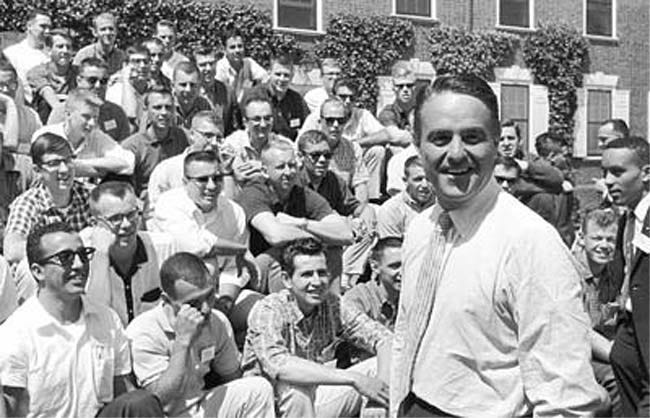A Historic Beginning: The First Peace Corps Volunteers Begin Their Journey
Honoring a key milestone for our community

Sixty-four years ago today, on June 25, 1961, a remarkable chapter in American service began: The very first Peace Corps volunteers gathered to start their training for deployment to three pioneering countries: Colombia, Tanganyika (now Tanzania), and Ghana (whose training began a few days later). This momentous day marked the transition from President Kennedy's bold vision to tangible reality.
The Colombia group began its intensive preparation at Rutgers University, while the Tanganyika volunteers started their training at a facility in El Paso, Texas. These diverse training locations reflected the Peace Corps' commitment to thorough preparation, recognizing that each assignment would require specific cultural, linguistic, and technical skills.
Just months after Kennedy's famous challenge to young Americans to "ask not what your country can do for you—ask what you can do for your country," these brave volunteers stepped forward to answer that call in an entirely new way. They were embarking on something unprecedented: A government program designed not for military intervention or economic dominance, but for genuine partnership and mutual understanding.
The choice of these three initial countries was deeply significant. Colombia represented Latin America, where the Alliance for Progress sought to foster democratic development. Ghana, having achieved independence just four years earlier, symbolized the promise of a new Africa emerging from colonialism. Tanganyika, soon to become Tanzania, offered another opportunity to support African development during a critical period of nation-building.
While all three groups were pioneers, each achieved different "firsts" in Peace Corps history. Colombia I holds the distinction of being the first Peace Corps Volunteers to begin training, officially starting at 8:00 AM EDT on June 26, 1961, at Rutgers University. Ghana I achieved the milestone of being the first volunteers to arrive on foreign soil, beginning their service on August 30, 1961. This distinction between "first to train" and "first to serve" reflects the careful, methodical approach the Peace Corps took in preparing volunteers for their groundbreaking assignments.
These first volunteers had no roadmap to follow, no predecessors to learn from, and no guarantee of success. They were writing the playbook as they went, guided only by Kennedy's vision of Americans living and working alongside people in developing nations as partners, not superiors. The Colombia I volunteers were addressed by Sargent Shriver himself on their first day of training, with dozens of reporters and photographers documenting the historic moment. Their willingness to embrace the unknown, to learn new languages, adapt to different cultures, and commit two years of their lives to service in unfamiliar places exemplified the spirit that would define the Peace Corps for decades to come.
The impact of that historic day in 1961 reverberates still. Over the past six decades, more than 240,000 Americans have served as Peace Corps volunteers in 142 countries, carrying forward the legacy of those first brave souls who began their training on June 25, 1961. Their service has touched millions of lives, built countless schools and health clinics, advanced agricultural techniques around the world, and created bridges of understanding between cultures.
As we commemorate this anniversary, we honor not just those first volunteers, but all who have answered the call to serve. Their stories of courage, adaptation, and service are precisely what Peace Corps Park, another project I am working on, will celebrate and preserve for future generations—ensuring that the spirit of June 25, 1961, continues to inspire Americans to serve their country and the world.




Glenn, when I see how young Sarg Shriver looks, I realize that this was, indeed, a new venture of youth ready to change the world. It is something that each generation of young people feels when they enter the Peace Corps, and is something that our country needs to reinforce now more than ever. Thanks for the post.
Terrific summary of Peace Corps history and purpose.
Thanks, Glenn. Wish we could continue to change this chaotic world!